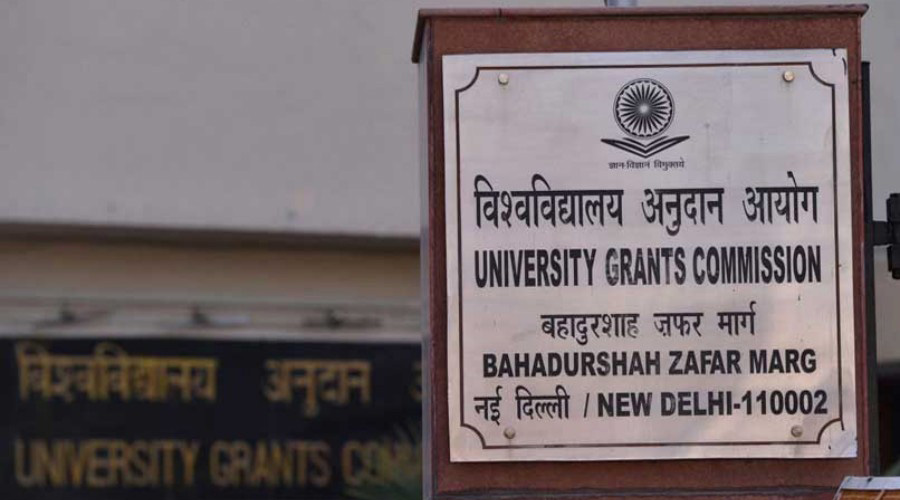Uncertainty has blighted the admission process at central universities with the government dithering on a proposed common entrance test and school boards delaying the announcement of results amid the pandemic.
With the future of students hanging in the balance at a time the pandemic has cast a pall of uncertainty over all aspects of life, academics wondered if too much centralisation was eating into the freedom enjoyed by educational institutions.
The education ministry is yet to take a decision on whether to launch the proposed Central University Common Entrance Test (CUCET) for the selection of students to undergraduate and postgraduate courses in the 40-odd central universities from the 2021-22 academic session. The exam, according to the plan, is to be conducted by the National Testing Agency (NTA).
Now, only 10 central universities that were started in 2009 conduct a common admission test to take in students for the master’s courses.
Central institutions such as Delhi University and Allahabad University traditionally admit students to undergraduate courses on the basis of Class XII marks.
This year, all these universities, including the 10 that had earlier opted for a common entrance exam, are waiting for the Centre to take a decision on the CUCET and are yet to begin the admission process.
A committee of vice-chancellors appointed by the University Grants Commission (UGC), the higher education regulator, had recommended separate CUCETs for undergraduate and postgraduate courses, to be conducted by the NTA.
According to the recommendations that were forwarded to the education ministry in the first week of April, the central universities would admit students to undergraduate courses by giving equal weightage to the common entrance test score and the board exam marks.
“There is too much centralisation these days. For the admission process, the university has to wait for the government’s decision. For examinations, the ministry gives guidelines. This centralisation is diluting the autonomy of academic institutions and disrupting their normal activities,” said Rajesh Jha, an assistant professor of Delhi University.
He said the central government and the UGC should bring out a broad plan on how to support institutions during the Covid crisis.
An education ministry official said no decision could be taken on the common entrance test because key officials were either down with Covid or busy with other official assignments.
A senior ministry official had been sent to Bengal as part of a central team to assess post-election-result violence.
“The government should take a decision at the earliest. Otherwise, we are unable to start our own entrance process. The entire process is getting delayed,” said the vice-chancellor of a new central university.
Last year, the 10 universities had started the application process in April for the common entrance test, which was held in May. Admissions at other higher educational institutions also take place around this time.
The VC said most school boards were yet to announce their results, which had aggravated the uncertainty over the admission process. All school boards have postponed their Class XII exams in view of the second wave of Covid.
Jawaharlal Nehru University (JNU) conducts its own entrance tests for undergraduate, postgraduate and research programmes. The application process starts in March. This time, the procedure is yet to start.
N. Sai Balaji, a student of JNU, said it was high time the central universities came out with their admission schedules.
“The institutions should take a decision and clarify their admission process. The delay is creating confusion among aspirants,” Balaji said.
Institutions such as IITs and deemed universities have prepared their academic road map. IIT Bombay has already conducted semester exams online and is ready to begin classes for existing students from July.
“Most students have taken the exams. Those who did not will get an additional chance. Our classes for existing students will start from July. Next month we will decide whether classes will be held online or offline,” said a senior official at IIT Bombay.
The fresh batch of students will be admitted on the basis of the JEE Advanced exam whose schedule is yet to be decided.
The Tata Institute of Social Sciences (TISS), a deemed university, is set to conduct its entrance exam soon and online classes from July.
Prof. P.K. Shajahan, the dean of academic affairs at the TISS, said the institute had developed an online learning platform — TISSOL — in June 2020 and conducted its classes online for the 2020-21 academic year. The assessment process was also conducted online with more application-oriented assignments and exams from home.
“The students who will be unable to complete their academic requirements within this time frame will be given an additional one month for completion. In case any other student is left out after this additional month, the institute will consider their issue on a case-to-case basis. No student will be penalised because of the prevailing crisis they are in,” Shajahan said.
He said the TISS was prepared to start classes for the existing batch of students most likely by the fourth week of July and those for the fresh batches by mid-August.












